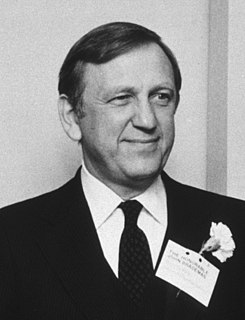
In contemporary education, mathematics education is the practice of teaching and learning mathematics, along with the associated scholarly research.

Secondary education in the United States is the last seven years of statutory formal education grade 6 through grade 12. It occurs in two phases. The first is the ISCED lower secondary phase, a junior high school or middle school for students grade 6 through grade 8. The second is the ISCED upper secondary phase, the high school for students grade 9 through grade 12. There is some debate over the optimum age of transfer, and variation in some states.

In education, a curriculum is broadly defined as the totality of student experiences that occur in the educational process. The term often refers specifically to a planned sequence of instruction, or to a view of the student's experiences in terms of the educator's or school's instructional goals. In a 2003 study, Reys, Reys, Lapan, Holliday, and Wasman refer to curriculum as a set of learning goals articulated across grades that outline the intended mathematics content and process goals at particular points in time throughout the K–12 school program. Curriculum may incorporate the planned interaction of pupils with instructional content, materials, resources, and processes for evaluating the attainment of educational objectives. Curriculum is split into several categories: the explicit, the implicit, the excluded, and the extracurricular.

The No Child Left Behind Act of 2001 (NCLB) was a U.S. Act of Congress that reauthorized the Elementary and Secondary Education Act; it included Title I provisions applying to disadvantaged students. It supported standards-based education reform based on the premise that setting high standards and establishing measurable goals could improve individual outcomes in education. The Act required states to develop assessments in basic skills. To receive federal school funding, states had to give these assessments to all students at select grade levels.

The National Education Association (NEA) is the largest labor union and the largest white-collar representative in the United States. It represents public school teachers and other support personnel, faculty and staffers at colleges and universities, retired educators, and college students preparing to become teachers. The NEA has just under 2.3 million members and is headquartered in Washington, D.C. The NEA had a budget of more than $341 million for the 2012–2013 fiscal year. Becky Pringle is the NEA's current president.
A national curriculum is a common programme of study in schools that is designed to ensure nationwide uniformity of content and standards in education. It is usually legislated by the national government, possibly in consultation with state or other regional authorities.

Stephen John Brademas Jr. was an American politician and educator originally from Indiana. He served as Majority Whip of the United States House of Representatives for the Democratic Party from 1977 to 1981 at the conclusion of a twenty-year career as a member of the United States House of Representatives. In addition to his major legislative accomplishments, including much federal legislation pertaining to schools, arts, and the humanities, he served as the 13th president of New York University from 1981 to 1992, and was a member of and subsequently the chairman of the board of the Federal Reserve Bank of New York. In addition he was a board member of the New York Stock Exchange and the Rockefeller Foundation.
Adequate Yearly Progress (AYP) is a measurement defined by the United States federal No Child Left Behind Act that allows the U.S. Department of Education to determine how every public school and school district in the country is performing academically according to results on standardized tests. As defined by National Council on Measurement in Education (NCME), AYP is "the amount of annual achievement growth to be expected by students in a particular school, district, or state in the U.S. federal accountability system, No Child Left Behind (NCLB)." AYP has been identified as one of the sources of controversy surrounding George W. Bush administration's Elementary and Secondary Education Act. Private schools are not required to make AYP.

The New York State Education Department (NYSED) is the department of the New York state government responsible for the supervision for all public schools in New York and all standardized testing, as well as the production and administration of state tests and Regents Examinations. In addition, the State Education Department oversees higher education, cultural institutions such as museums and libraries, vocational rehabilitation, and the licensing of numerous professions. It is headed by the regents of the University of the State of New York (USNY) and administered by the Commissioner of Education.
Linda Darling-Hammond is an American academic who is the Charles E. Ducommun Professor of Education Emeritus at the Stanford Graduate School of Education. She was also the President and CEO of the Learning Policy Institute. She is author or editor of more than 25 books and more than 500 articles on education policy and practice. Her work focuses on school restructuring, teacher education, and educational equity. She was education advisor to Barack Obama's 2008 presidential campaign and was reportedly among candidates for United States Secretary of Education in the Obama administration.
Sandra Stotsky is Professor emerita in the Department of Education Reform at the University of Arkansas, and held the 21st Century Chair in Teacher Quality. Her research ranges from teacher licensure tests, e.g., (1), coherence in the literature and reading curriculum, e.g., (2), and academic achievement in single-sex classrooms, e.g., (3) to critiques of Common Core’s standards in English language arts, e.g., (4) mathematics.(5), and US History and civic education (6), and other aspects of the Common Core project, e.g., (7), and to reviews of books in education, e.g., (8) She is an advocate of standards-based reform and strong academic standards and assessments for students and teachers.
Learning standards are elements of declarative, procedural, schematic, and strategic knowledge that, as a body, define the specific content of an educational program. Standards are usually composed of statements that express what a student knows.
The Rhode Island Department of Elementary and Secondary Education (RIDE) is a state agency in Rhode Island that oversees the elementary and secondary education system from pre-Kindergarten through high school. It is headquartered in Providence. RIDE works closely with the Rhode Island Office of the Postsecondary Commissioner (RIOPC), the agency charged with overseeing higher education. Together, RIDE and RIOPC aim to provide an aligned, cohesive, and comprehensive education for all students.
From kindergarten through high school, the mathematics education in public schools in the United States has historically varied widely from state to state, and often even varies considerably within individual states. With the recent adoption of the Common Core Standards by 45 states, mathematics content across the country is moving into closer agreement for each grade level.

The Louisiana Board of Elementary and Secondary Education (BESE) is an administrative policy-making body for elementary and secondary schools in the U.S. state of Louisiana. It was created in the 1973 Louisiana Constitutional Convention, called by then Governor Edwin W. Edwards, and codified as Article VIII of the resulting document, the 1974 Louisiana Constitution.
The Common Core State Standards Initiative is an educational initiative from 2010 that details what K–12 students throughout the United States should know in English language arts and mathematics at the conclusion of each school grade. The initiative is sponsored by the following organizations:
The Partnership for Assessment of Readiness for College and Careers (PARCC) is a consortium featuring two states, the District of Columbia, the Department of Defense Educational Activity, and the Bureau of Indian Education, that work to create and deploy a standard set of K–12 assessments in Mathematics and English, based on the Common Core State Standards.

An elementary school is a primary school which is the main point of delivery of primary education in the United States, for children between the ages of 5–11 and coming between pre-kindergarten and secondary education.

The Every Student Succeeds Act (ESSA) is a US law passed in December 2015 that governs the United States K–12 public education policy. The law replaced its predecessor, the No Child Left Behind Act (NCLB), and modified but did not eliminate provisions relating to the periodic standardized tests given to students. Like the No Child Left Behind Act, ESSA is a reauthorization of the 1965 Elementary and Secondary Education Act, which established the federal government's expanded role in public education.
Arthur Noble Applebee was a researcher and professional leader in United States secondary education. He obtained his doctorate at the University of London in 1973 and held professorships at Stanford University (1980–1987) and the University at Albany, State University of New York (1987–2015). Active in national policy, he assisted in validating the Common Core State Standards and co-authored fourteen of the National Assessment of Educational Progress's "Reading Report Cards" documenting student achievement. He also documented the state of the teaching of writing in U.S. Secondary Schools in a number of studies. In addition to his scholarly work, he also was lead author/editor on numerous series of English textbooks for both primary and secondary schools, comprising at least 35 volumes. Applebee served as editor from 1984 to 1991 of Research in the Teaching of English, as president of the National Conference on Research in Language and Literacy and as a member of the Validation Committee for the Common Core State Standards.








